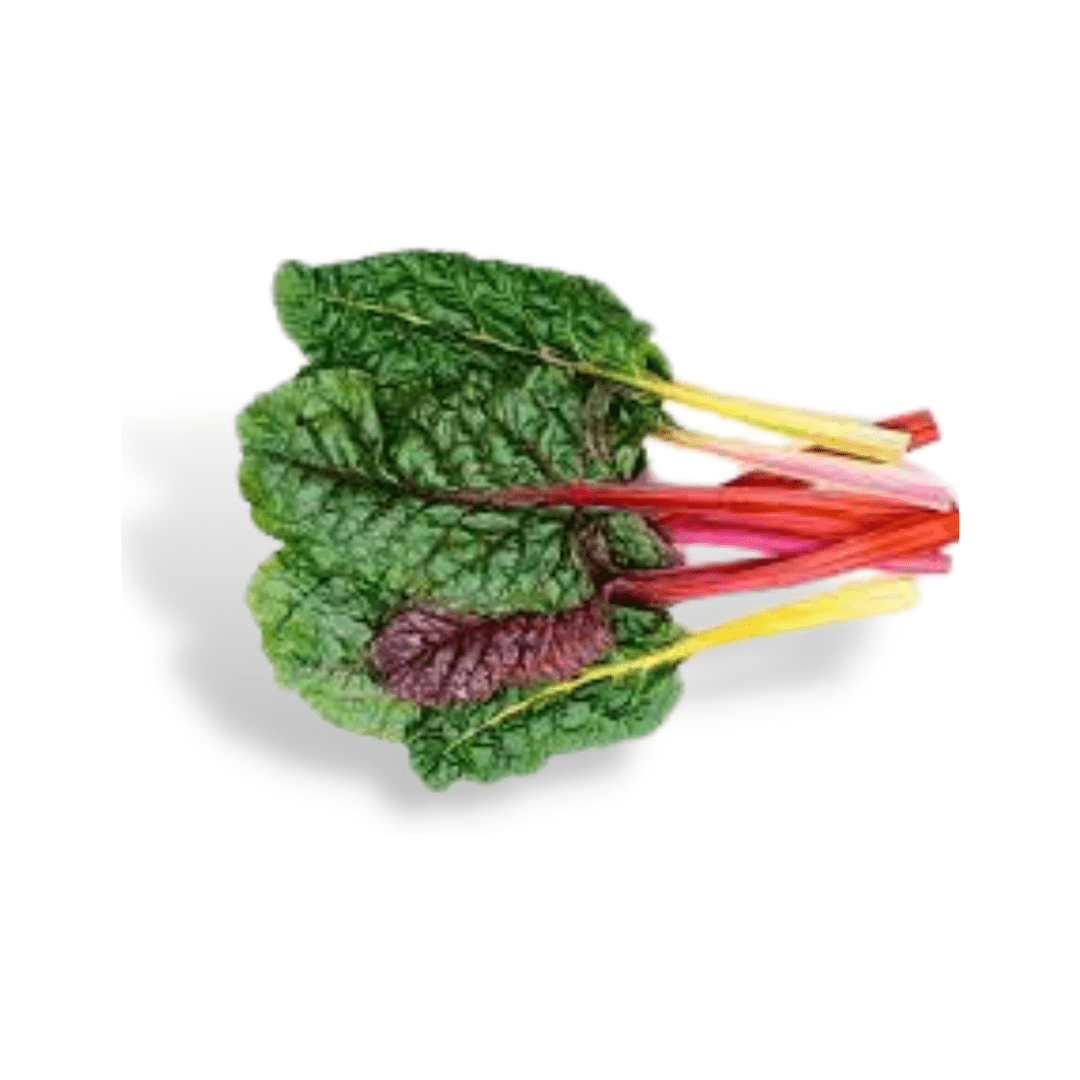About
Chard, also known as Swiss chard, is a leafy green vegetable that belongs to the same family as beets and spinach. It is a nutrient-dense vegetable that is packed with various vitamins, minerals, and antioxidants.
Health Benefits of Chard:
-
Rich in Antioxidants: Chard is a good source of antioxidants, including beta-carotene, lutein, and zeaxanthin. These antioxidants help protect the body against free radicals, which can damage cells and lead to chronic diseases.
-
Promotes Bone Health: Chard is an excellent source of calcium, magnesium, and vitamin K, which are essential for maintaining healthy bones.
-
Supports Heart Health: Chard is rich in potassium, which can help lower blood pressure and reduce the risk of heart disease.
-
Aids Digestion: Chard is a good source of fiber, which can help promote healthy digestion and prevent constipation.
-
Boosts Immunity: Chard is a good source of vitamin C, which is essential for a healthy immune system.
-
Regulates Blood Sugar: Chard is a low-glycemic index food, which means it can help regulate blood sugar levels.
List of diseases that Chard may help prevent or manage:
- Osteoporosis
- Heart disease
- Type 2 diabetes
- Certain cancers
- Digestive disorders
Nutrition Information for 50g Serving of Chard:
Energy and Macronutrient Content
| Nutrient | Amount Per Serving |
|---|---|
| Calories | 7 |
| Carbohydrates | 1.4 g |
| Protein | 0.8 g |
| Fat | 0.1 g |
| Fiber | 0.6 g |
| Water | 47.1 g |
Vitamin Content
| Nutrient | Amount Per Serving |
|---|---|
| Vitamin A | 2,751 IU |
| Vitamin B1 | 0.03 mg |
| Vitamin B2 | 0.03 mg |
| Vitamin B3 | 0.3 mg |
| Vitamin B6 | 0.03 mg |
| Vitamin B12 | 0 mcg |
| Vitamin C | 9.9 mg |
| Vitamin D | 0 IU |
| Vitamin E | 0.5 mg |
| Vitamin K | 293.5 mcg |
| Folate | 14.5 mcg |
| Biotin | 0.1 mcg |
Mineral Content
| Nutrient | Amount Per Serving |
|---|---|
| Calcium | 33.6 mg |
| Iron | 0.6 mg |
| Iodine | 0 mcg |
| Zinc | 0.3 mg |
| Magnesium | 19.5 mg |
| Phosphorus | 18.5 mg |
| Potassium | 176 mg |
| Sodium | 43 mg |
| Chloride | 0 mg |
| Copper | 0.1 mg |
| Chromium | 0 mcg |
| Fluoride | 0 mcg |
| Molybdenum | 2.3 mcg |
| Manganese | 0.2 mg |
| Selenium | 0.4 mcg |
What are the health benefits of Chard?
Chard offers a range of health benefits, including being rich in vitamins, minerals, and antioxidants that support heart health, digestion, and overall well-being.
Is Chard good for weight loss?
Yes, Chard is low in calories and high in fiber, making it a great addition to a weight loss diet as it helps promote satiety.
does Chard help with digestion?
Chard contains dietary fiber, which aids in digestion and supports a healthy digestive system.
What vitamins are in Chard?
Chard is a good source of vitamins A, C, and K, along with minerals like potassium and magnesium.
Can Chard lower cholesterol?
The fiber and antioxidants in Chard may contribute to maintaining healthy cholesterol levels and supporting heart health.
How to grow Chard plants?
How to grow Chard plants? A: Chard can be easily grown from seeds or seedlings in well-draining soil and partial sunlight. Regular watering and proper spacing are essential for healthy growth.
What are common Chard pests?
Common pests that may affect Chard include aphids, flea beetles, and leaf miners. Implementing pest control measures and practicing crop rotation can help manage them.
How to prevent Chard diseases?
To prevent Chard diseases, practice good garden hygiene, provide adequate air circulation, and avoid overwatering. Removing infected plants promptly is also crucial.
Is Chard safe for kids to eat?
Yes, Chard is generally safe for kids to eat. It's a nutrient-rich vegetable that can be introduced to children's diets gradually.
What are the nutrients in Chard?
Chard is packed with nutrients like vitamins A, C, and K, as well as iron and calcium, offering various health benefits.
How to store Chard properly?
To store Chard, remove any damaged leaves, wrap it in a damp paper towel, and store it in a plastic bag in the refrigerator for up to a few days.
Are there any side effects of Chard consumption?
While Chard is generally safe for most people, some individuals may experience digestive discomfort. It's advisable to consume it in moderation and observe personal tolerance.
Can Chard improve skin health?
Yes, Chard's high vitamin content, particularly vitamins A and C, can contribute to healthy skin and a radiant complexion.
Does Chard help with hair growth?
While Chard provides some nutrients that support hair health, there is no direct evidence that it specifically promotes hair growth.
Is Chard beneficial for heart health?
Yes, Chard's high potassium content and antioxidants can contribute to heart health by supporting normal blood pressure levels and overall cardiovascular function.
How does Chard support the immune system?
Chard contains vitamins A and C, which are known for their immune-boosting properties, helping to protect the body against infections and illnesses.
Can Chard be included in a diabetic diet?
Yes, Chard can be included in a diabetic diet as part of a balanced meal plan. It has a low glycemic index and provides essential nutrients without causing spikes in blood sugar levels.
What are the culinary uses of Chard?
Chard can be used in a variety of culinary dishes, such as sautés, salads, quiches, pasta dishes, and green smoothies, adding a mild, slightly earthy flavor to recipes.









